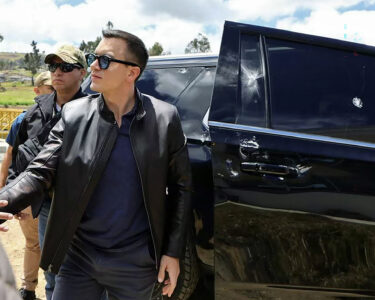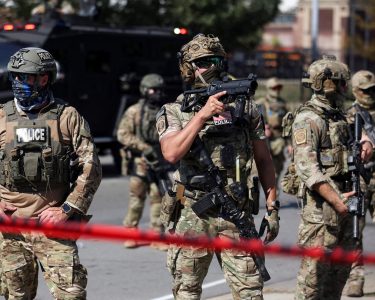MEXICO CITY, Mexico — At least 30 people have been killed in the past two weeks in Mexico’s northern state of Sinaloa as two rival factions of the powerful Sinaloa cartel continue to clash, authorities said Tuesday.
Defense Secretary Luis Cresencio Sandoval said that two military personnel were among those killed in the fighting that started Sept. 9, despite the presence of more than 2,000 security forces in the region.
The surge in violence had been expected after Joaquín Guzmán López, a son of former Sinaloa cartel leader Joaquín “El Chapo” Guzmán, landed near El Paso, Texas, on July 25 in a small plane with Ismael “El Mayo” Zambada.
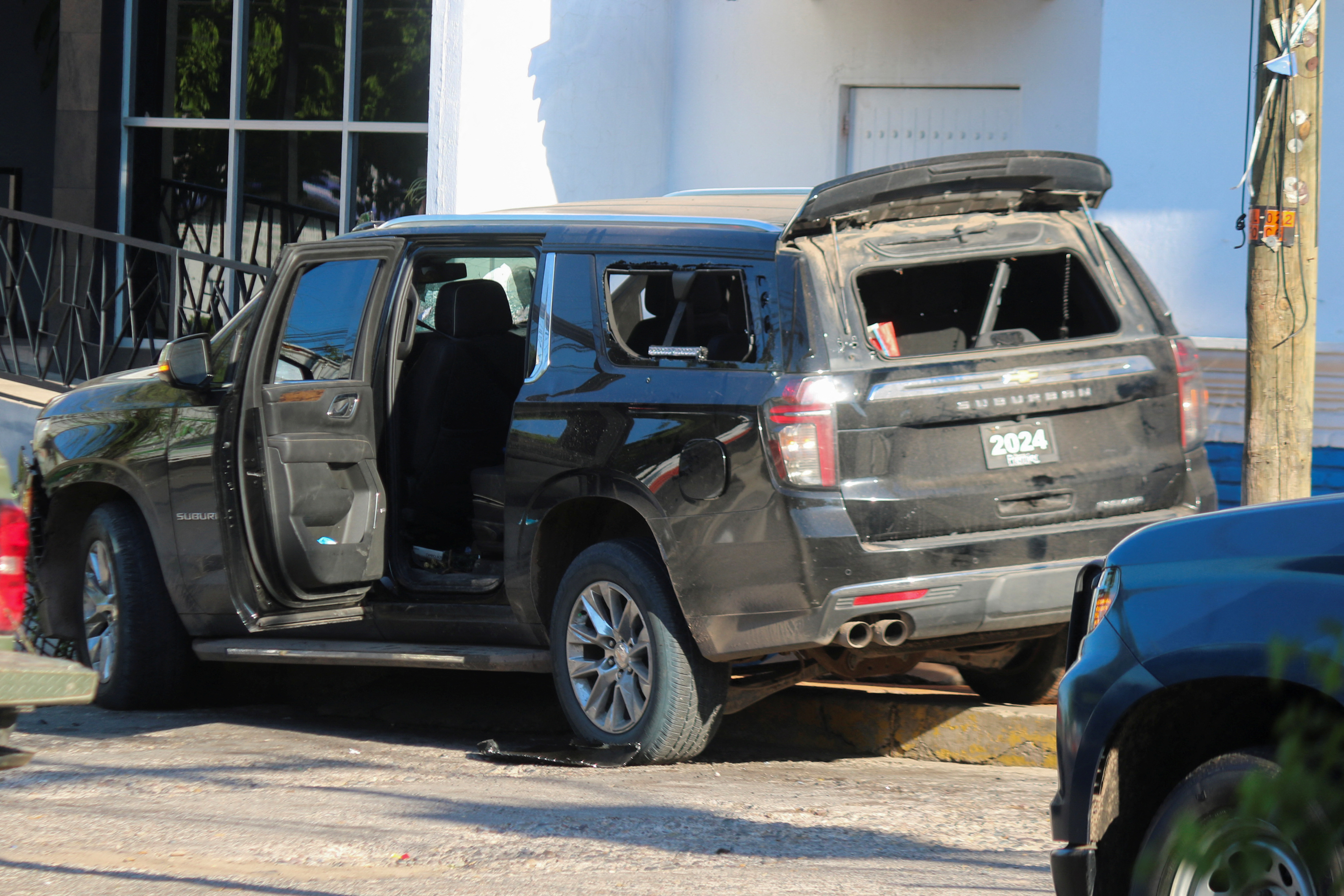 A damaged automobile is seen after a confrontation between armed groups, in Culiacan, Mexico September 9, 2024.
A damaged automobile is seen after a confrontation between armed groups, in Culiacan, Mexico September 9, 2024.
Zambada was the cartel’s elder figure and reclusive leader. After his arrest, he said in a letter circulated by his lawyer that he had been abducted by the younger Guzmán and taken to the U.S. against his will.
Now there appears to be a struggle for power between the remaining sons of El Chapo, known locally as “the Chapitos,” and those loyal to Zambada.
The clashes in Culiacán, the capital of Sinaloa, are the latest example of the violence that continues to plague Mexico, where cartels employ increasingly sophisticated forms of warfare, including roadside bombs or IEDs, trenches, homemade armored vehicles, and bomb-dropping drones. Since the beginning of last week, Culiacán has been nearly paralyzed. Schools are empty, businesses are closed, and there is almost no public transportation due to people’s fear of being caught in the middle of a shootout.
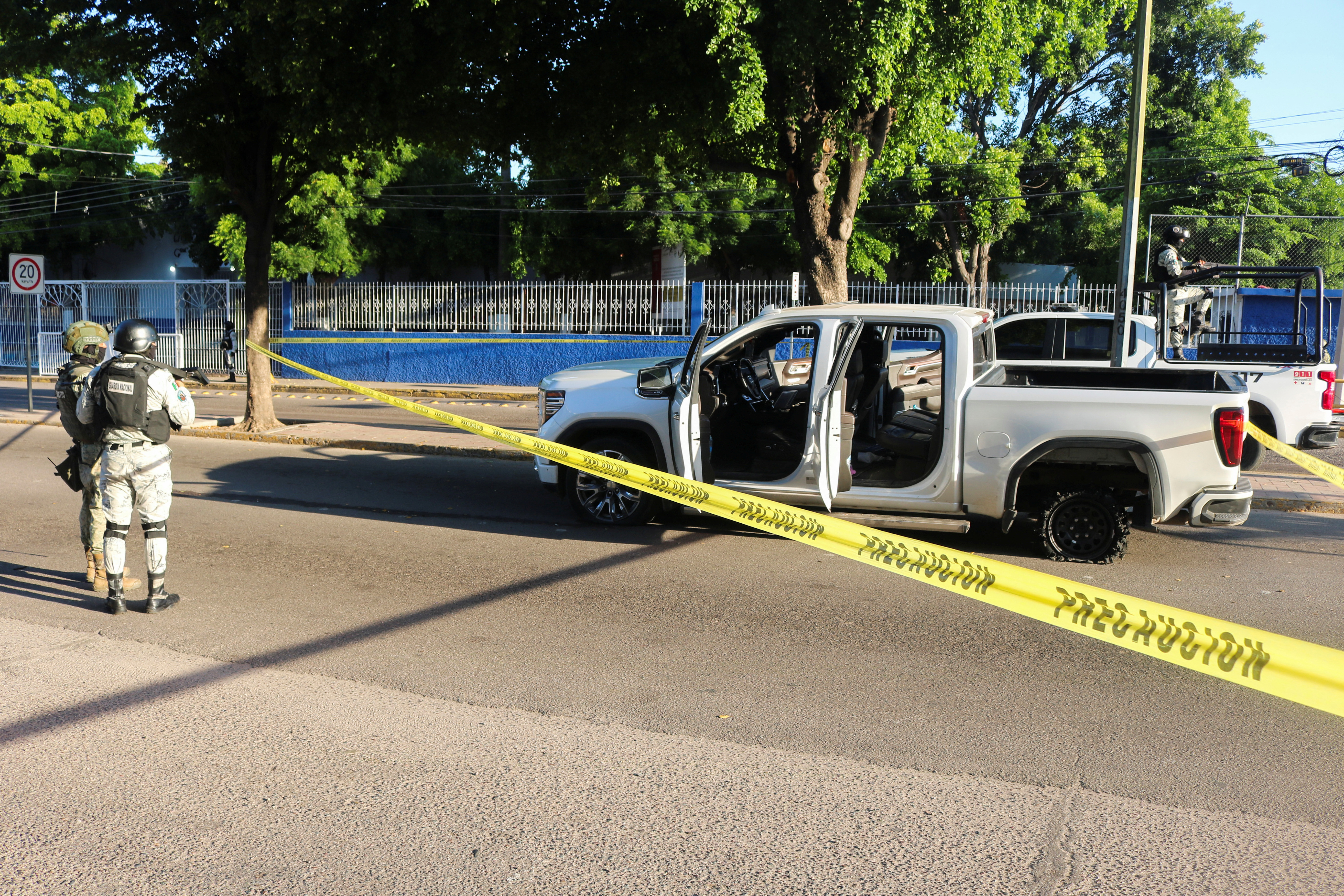 Mexican security forces respond at the scene of a damaged automobile after a confrontation between armed groups, in Culiacan, Mexico September 9, 2024.
Mexican security forces respond at the scene of a damaged automobile after a confrontation between armed groups, in Culiacan, Mexico September 9, 2024.
Defense Secretary Luis Cresencio Sandoval said that 2,200 members of the armed forces and the National Guard have been deployed to Sinaloa to reinforce security, and additional military reinforcements have not been ruled out.
On Monday, regional army commander, Jesús Leana Ojeda, said the possibility of the situation calming down is beyond their control. “It depends on the warring groups to stop fighting,” he said at a press briefing.
“We, on the contrary, are here to prevent them from having confrontations and the loss of human lives,” he added.
 Police watch forensics remove bodies from a street in Culiacan, Sinaloa state, Mexico, Tuesday, Sept. 17, 2024. (AP Photo)
Police watch forensics remove bodies from a street in Culiacan, Sinaloa state, Mexico, Tuesday, Sept. 17, 2024. (AP Photo)
Although they have received reinforcements and military helicopters, Sinaloa’s Gov. Rubén Rocha suspended schools last week and festivities around Mexican Independence Day over the weekend. Schools resumed classes Tuesday.
Outgoing President Andrés Manuel López Obrador said Tuesday that the Armed Forces are protecting the population and ensuring that there are no clashes between criminal groups.
Throughout his presidency, López Obrador has favored a “hugs, not bullets” strategy that seeks to avoid direct confrontations with cartels, a policy that has often caused tensions with the United States. He claims that many people are forced into criminal activity due to a lack of opportunities, and his strategy includes job training programs for young people to prevent them from becoming cartel recruits.
President-elect Claudia Sheinbaum has said she will maintain her predecessor’s security policy.
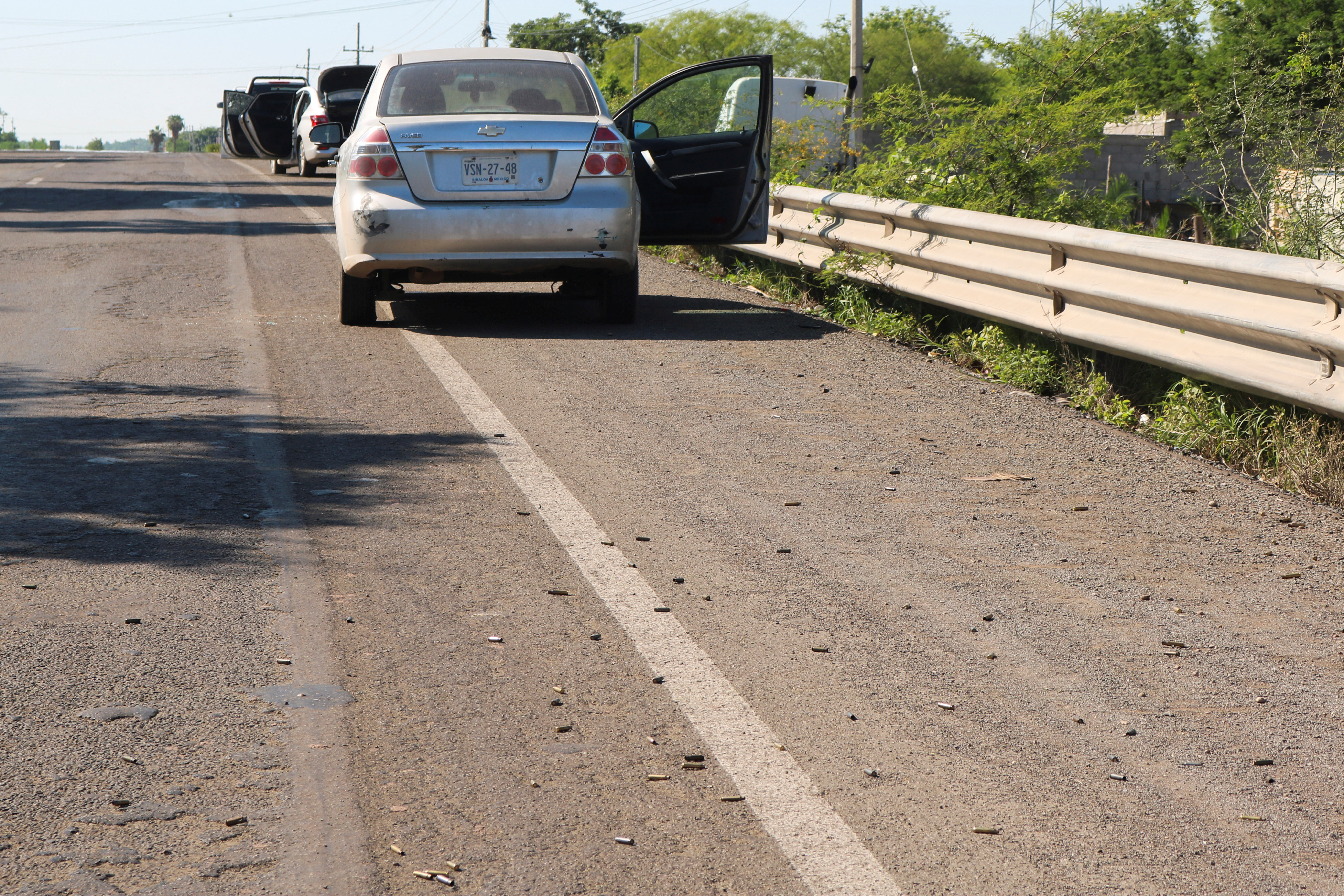 Shell casings are seen on the road after a confrontation between armed groups, in Culiacan, Mexico September 9, 2024.
Shell casings are seen on the road after a confrontation between armed groups, in Culiacan, Mexico September 9, 2024.
 A damaged automobile is seen after a confrontation between armed groups, in Culiacan, Mexico September 9, 2024.
A damaged automobile is seen after a confrontation between armed groups, in Culiacan, Mexico September 9, 2024. Police watch forensics remove bodies from a street in Culiacan, Sinaloa state, Mexico, Tuesday, Sept. 17, 2024. (AP Photo)
Police watch forensics remove bodies from a street in Culiacan, Sinaloa state, Mexico, Tuesday, Sept. 17, 2024. (AP Photo)

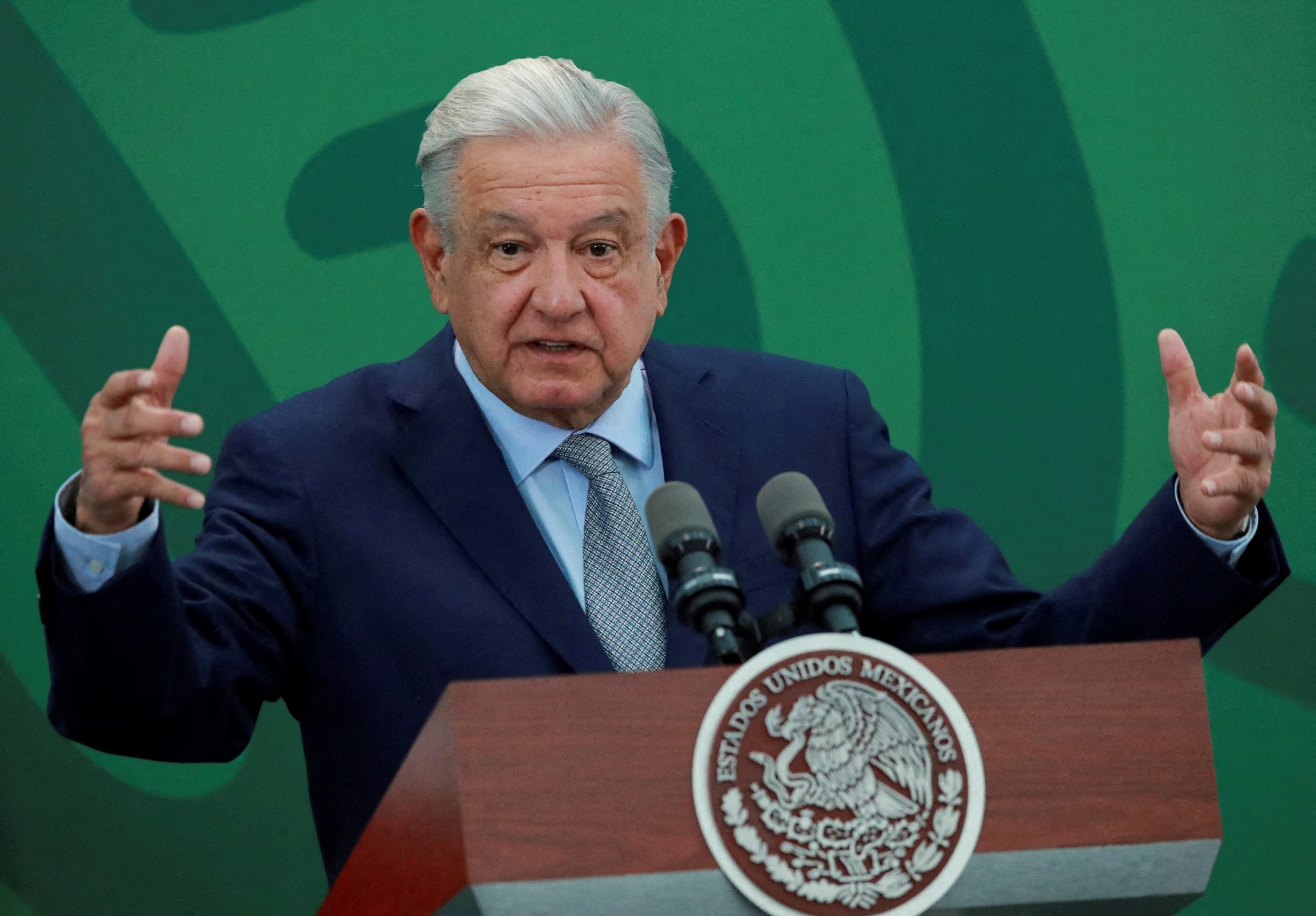

 Mexican security forces respond at the scene of a damaged automobile after a confrontation between armed groups, in Culiacan, Mexico September 9, 2024.
Mexican security forces respond at the scene of a damaged automobile after a confrontation between armed groups, in Culiacan, Mexico September 9, 2024. Shell casings are seen on the road after a confrontation between armed groups, in Culiacan, Mexico September 9, 2024.
Shell casings are seen on the road after a confrontation between armed groups, in Culiacan, Mexico September 9, 2024.
